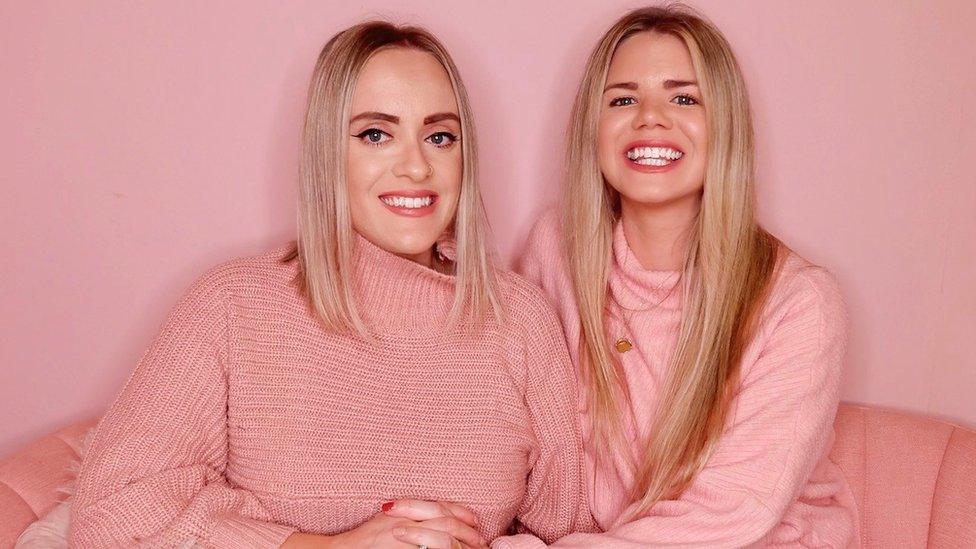Same-sex parents describe feeling 'judged'
- Published
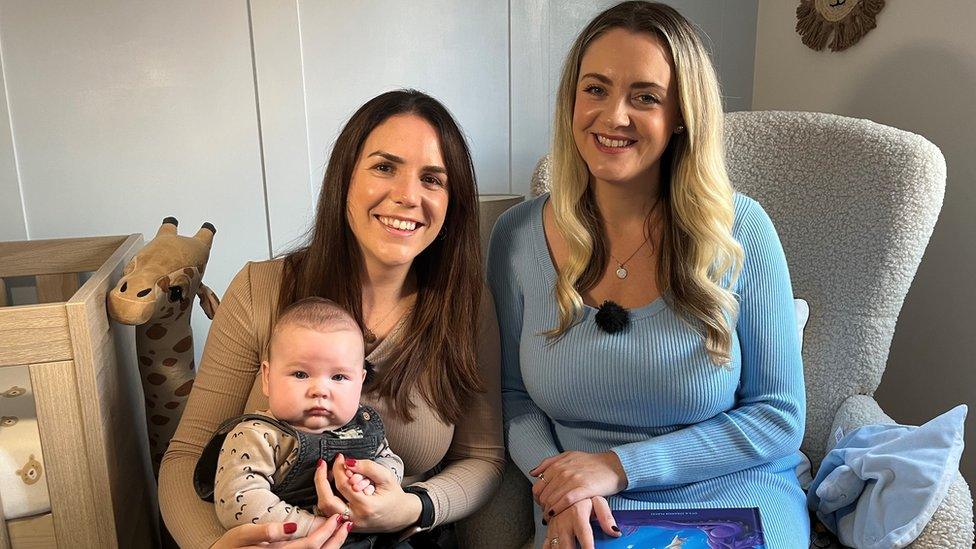
Sarah Louise (right) gave birth to son Louis after three rounds of IVF with partner Emma
There are more same-sex parents than ever before but some still feel vulnerable and have described encountering comments that have made them feel judged and uncomfortable. The BBC spoke to two sets of mums and dads about their experiences.
'People sometimes make assumptions'
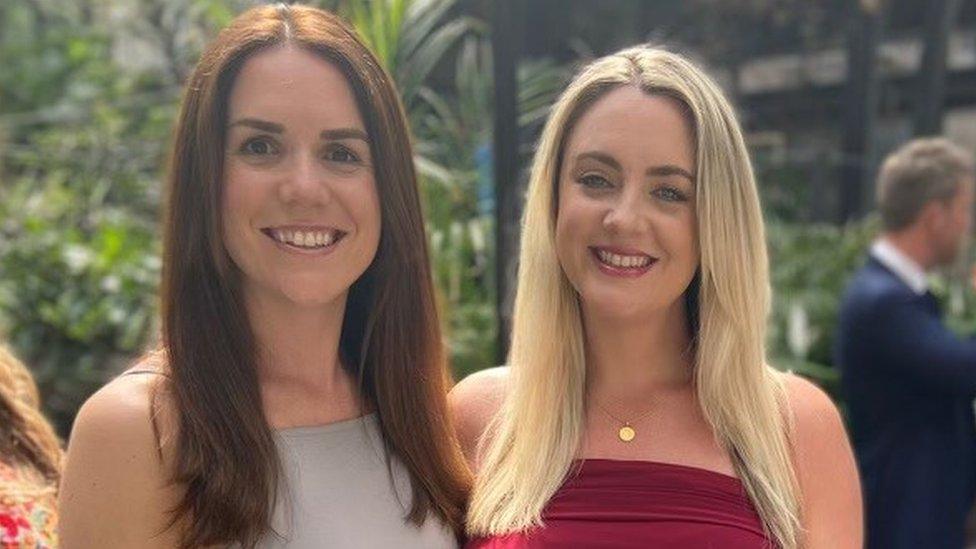
Sarah Louise and Emma said they were often mistaken for friends or sisters
Sarah Louise, 35, from Hampshire, recently gave birth to Louis after three rounds of IVF with 34-year-old partner Emma .
The couple said they had a great support network of friends and family but while the majority of their experiences in public were positive, sometimes they were made to feel different.
Emma said: "People sometimes make assumptions that we are sisters or best friends. It makes you feel different but it makes you feel like you have to come out again and that can be just tiring.
"You don't always want to have to explain and talk people through it and get their reactions. Most of the time we do have positive reactions but I think you are always hesitant to go into some scenarios - just in case you get some negative reaction."
Sarah Louise added: "On the flip side, I think it works to our advantage, people thinking we are just friends or sisters, because you don't get all the weird looks.
"Sometimes I want to be mistaken in certain situations because then you can blend in more."
The couple admitted to being less affectionate in public since having their son.
"We do feel like we are getting judged," Sarah Louise said.
Emma said they tended to get "a lot of questions".
"It feels quite intrusive, more questions than would be asked to a heterosexual couple, people digging into our relationship," she said.
Sarah Louise said she worried Louis could get bullied as he grows up and goes to school.
"So many children don't have that judgemental hat on, it more comes from the parents and a lot of those parents will be our age, growing up in a more understanding generation, so I am secretly hoping it will be fine, but it is in the back of our minds," she said.
Emma added: "The goal is for it to be a normal thing and for people to not be shocked by it, or having any feelings, so you don't have to keep announcing it."
'I think it's more clumsiness'
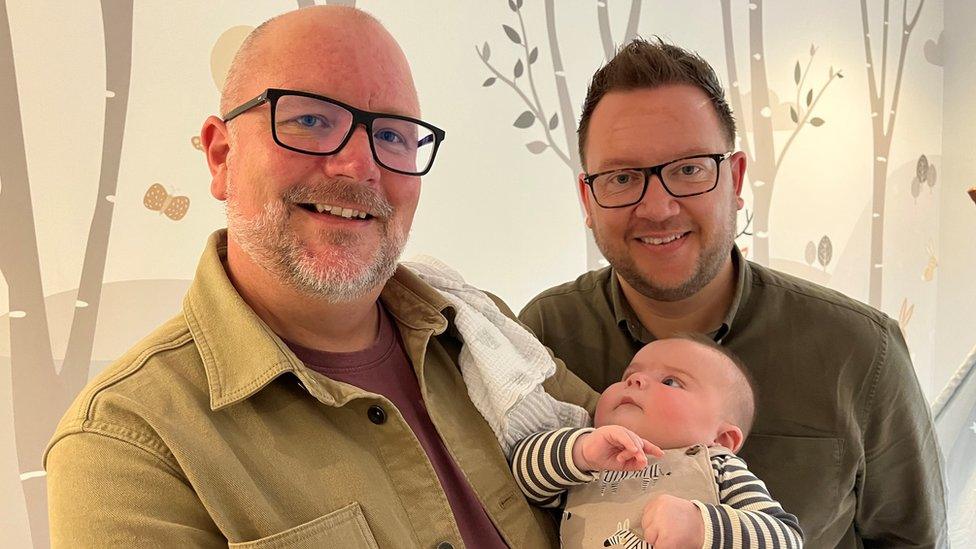
Chris (left) and Marc said they got asked uncomfortable questions even before Oliver was born
Marc, 35, and husband Chris, 42, started their surrogacy journey four years ago, soon after getting married.
The couple, also from Hampshire, said they received a lot of support during the process but felt the terminology used to describe the nature of the parental relationship did not sit well with them.
Marc said: "They would say, 'How's the mum now?'. It's surrogate not mum. I think it's more clumsiness than anything else or lack of knowledge."
The couple said they got comments and questions even before their son Oliver was born, such as "will your baby be one of these non-binary babies?".
"My answer was that they will be a boy or a girl and when they are old enough to decide for themselves, that may change," said Marc.
"Later I reflected on whether a heterosexual couple would have been asked that."
The pair say that many organisations do not always factor in same-sex parents when they send out correspondence.
Chris said: "When we have been signing up for online baby clubs and memberships schemes it's very clear they are set up for a more conventional family, i.e. mum and dad - they assume you are mum. There's definitely more that organisations can do just to tailor or personalise."
Marc suggested a "quick fix" would be to use "dear parent".
A "standout moment", he said, was walking along Southsea seafront with his mother-in-law and baby Oliver when a stranger asked "where's his mum?"
"I didn't' know how to respond so I said 'his granny is in there getting a coffee'. He was only four weeks old at the time and I was feeding him so it was a vulnerable set of circumstances."
Chris added: "We are privileged to be in this position and appreciate that it isn't very common so there is an element that we would expect some of it.
"I think acceptance in general will change and naturally that happens over time when society becomes more aware of same sex couples with children."
'People doing a double-take makes me angry'
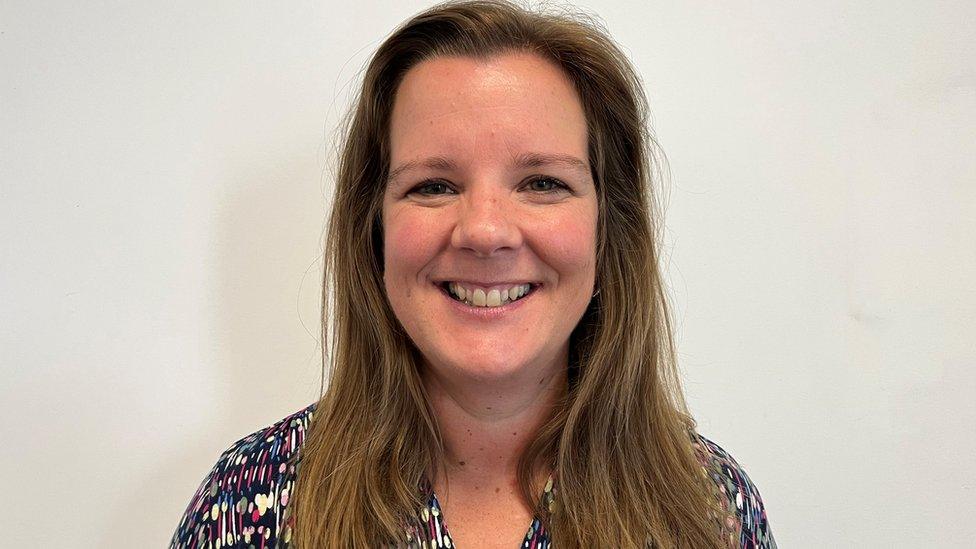
Vicky Mariner, from the National Childbirth Trust, said society has a long way to go to be fully inclusive of all parents
Vicky Mariner, a counsellor at the National Childbirth Trust, said her charity, which offers information and support to parents, had adapted over the past decade to make sure they reflect all parents.
She said the goal of the "very inclusive charity" was for all parents to feel supported.
"Eight years ago I may have done a mums' day or dads' day, whereas now it's about partners," Ms Mariner explained.
But she believes society has a long way to go to be fully inclusive.
She said: "For me, it's not unusual, every third or fourth course I do we have two mums or two dads.
"In reality there are a lot of same sex couples that are having children so this experience when people do a double-take makes me really angry because they are just parents."

Follow BBC South on Facebook, external, X, external, or Instagram, external. Send your story ideas to south.newsonline@bbc.co.uk, external.
Related topics
- Published27 October 2023
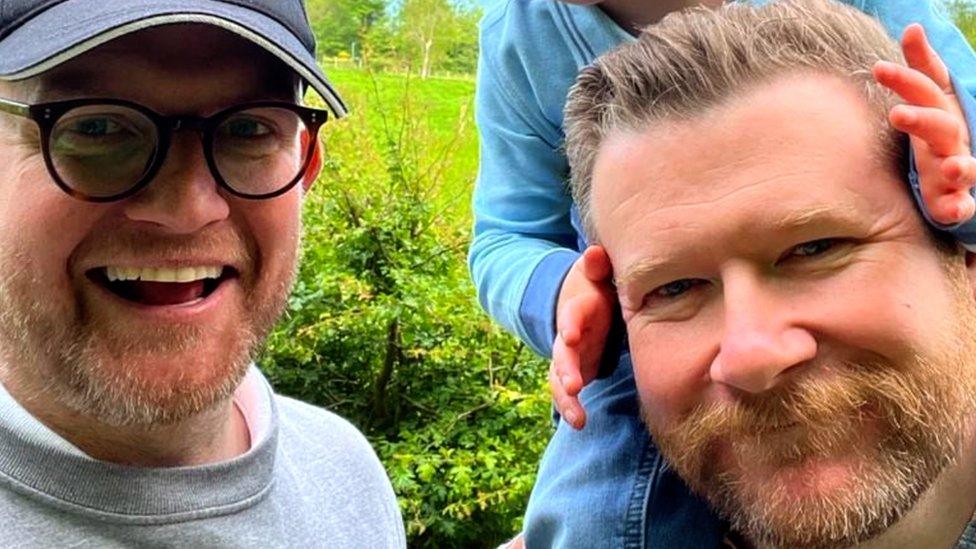
- Published18 October 2023
- Published13 October 2023
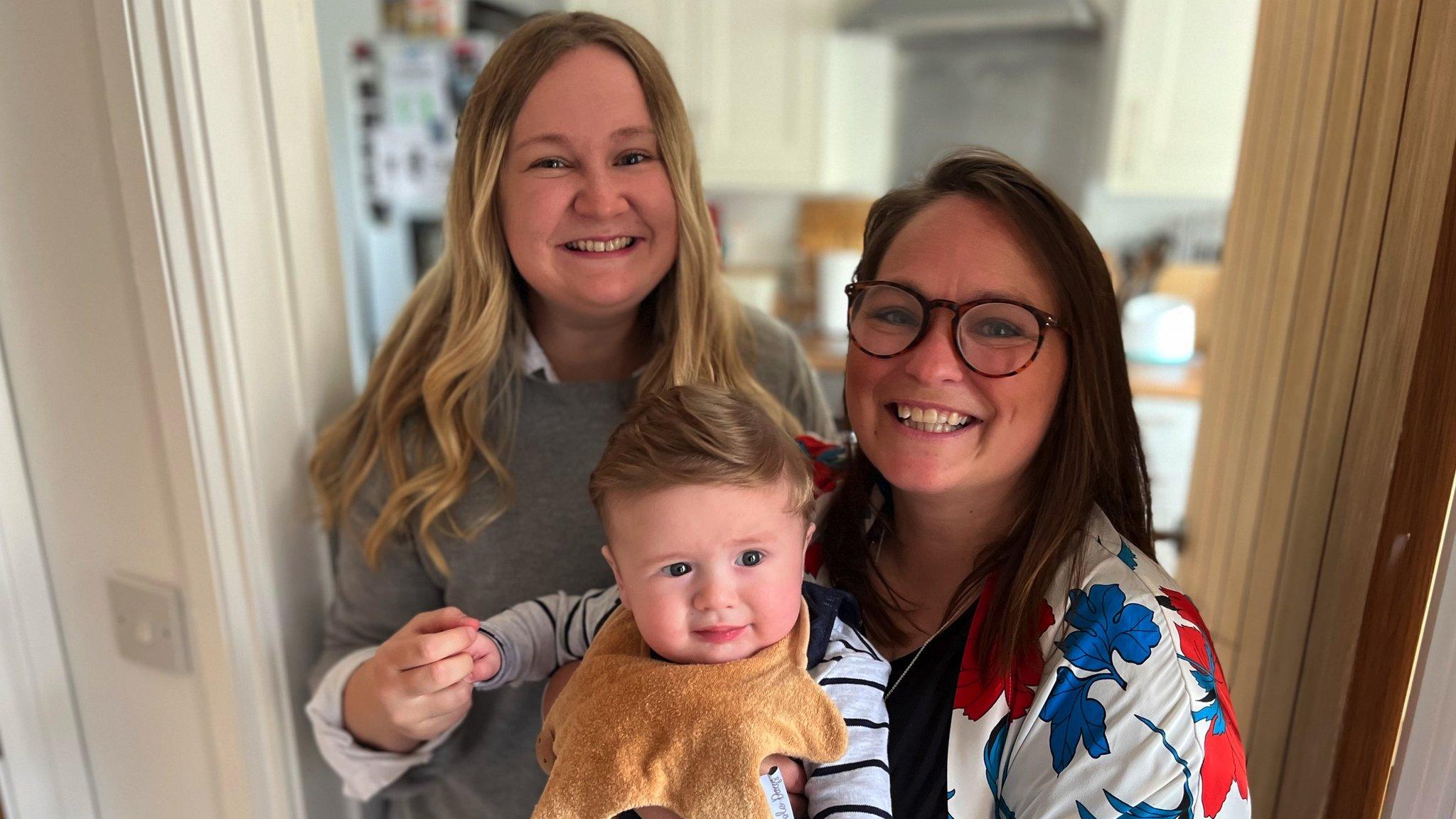
- Published22 July 2023
